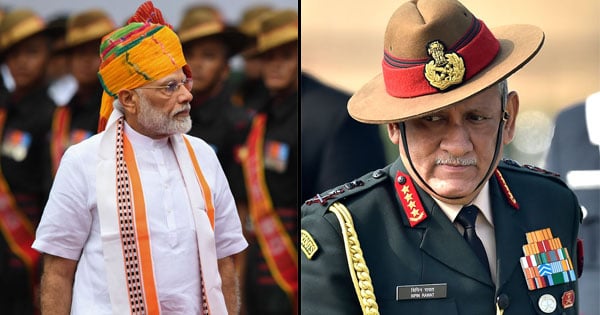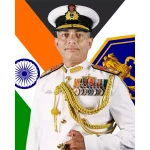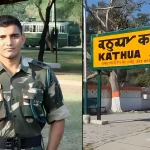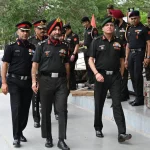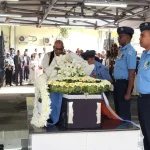In a landmark decision with tremendous reform in higher defence management in the country, the Union Cabinet chaired by Prime Minister Narendra Modi has approved to create the post of Chief of Defence Staff in the rank of a four-star General with salary and perquisites equivalent to a Service Chief. The Chief of Defence Staff will also head the Department of Military Affairs (DMA), to be created within the Ministry of Defence and function as its Secretary.
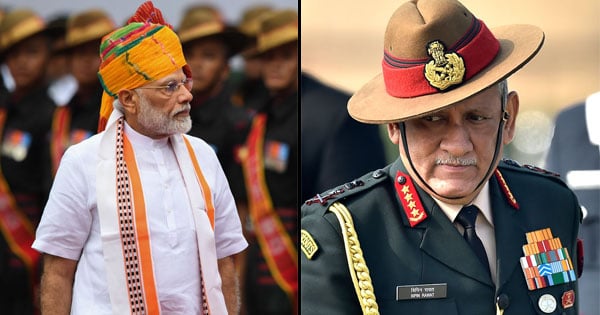
The following areas will be dealt by the Department of Military Affairs headed by CDS:
- The Armed Forces of the Union, namely, the Army, the Navy and the Air Force.
- Integrated Headquarters of the Ministry of Defence comprising Army Headquarters, Naval Headquarters, Air Headquarters and Defence Staff Headquarters.
- The Territorial Army.
- Works relating to the Army, the Navy and the Air Force.
- Procurement exclusive to the Services except capital acquisitions, as per prevalent rules and procedures.
Apart from the above, the mandate of the Department of Military Affairs will include the following areas:
- Promoting jointness in procurement, training and staffing for the Services through joint planning and integration of their requirements.
- Facilitation of restructuring of Military Commands for optimal utilisation of resources by bringing about jointness in operations, including through establishment of joint/theatre commands.
- Promoting use of indigenous equipment by the Services.
The Chief of Defence Staff, apart from being the head of the Department of Military Affairs, will also be the Permanent Chairman of the Chiefs of Staff Committee. He will act as the Principal Military Adviser to Raksha Mantri on all tri-Services matters. The three Chiefs will continue to advise RM on matters exclusively concerning their respective Services. CDS will not exercise any military command, including over the three Service Chiefs, so as to be able to provide impartial advice to the political leadership.
As the Permanent Chairman of Chiefs of Staff Committee, CDS will perform the following functions:
- CDS will administer tri-services organisations. Tri-service agencies/organisations/commands related to Cyber and Space will be under the command of the CDS.
- CDS will be member of Defence Acquisition Council chaired by Raksha Mantri and Defence Planning Committee chaired by NSA.
- Function as the Military Adviser to the Nuclear Command Authority.
- Bring about jointness in operation, logistics, transport, training, support services, communications, repairs and maintenance, etc of the three Services, within three years of the first CDS assuming office.
- Ensure optimal utilisation of infrastructure and rationalise it through jointness among the services.
- Implement Five-Year Defence Capital Acquisition Plan (DCAP), and Two-Year roll-on Annual Acquisition Plans (AAP), as a follow up of Integrated Capability Development Plan (ICDP).
- Assign inter-Services prioritisation to capital acquisition proposals based on the anticipated budget.
- Bring about reforms in the functioning of three Services aimed at augmenting combat capabilities of the Armed Forces by reducing wasteful expenditure.
It is expected that this reform in the Higher Defence Management would enable the Armed Forces to implement coordinated defence doctrines and procedures and go a long way in fostering jointmanship among the three Services. The country would be benefitted by coordinated action on greater jointmanship in training, logistics and operations as well as for prioritisation of procurements.
Background
This follows the announcement made by the Prime Minister on 15th August 2019, in his address to the nation, inter alia, “India should not have a fragmented approach. Our entire military power will have to work in unison and move forward. All the three (Services) should move simultaneously at the same pace. There should be good coordination and it should be relevant to the hope and aspirations of our people. It should be in line with the changing war and security environment with the world. After formation of this post (CDS), all the three forces will get effective leadership at the top level.”
Why India Needs Chief of Defence Staff (CDS)
- India should not have a fragmented approach.
- Our entire military power will have to work in unison. All the three (Services) should move simultaneously at the same pace. ·
- Changing nature of war and security environment;
- Government conscious of National Security challenges. ·
- Recognition to military expertise in department’s decision making.
- Breaking Silos: Integration, collaboration, convergence and rationalization.
- Meritocracy: Right person to do right job.

Context:
- Vajpayee- Victory at Kargil- lessons learnt (Kargil Committee/ GoM)- steps towards integration
- Vajpayee + – culmination of process started at that time.
- Also more integration and further enhancement of role to meet newer challenges. · Not mere creation of a post but institutional reforms to achieve national security aims.

Role and responsibilities of Chief of Defence Staff (CDS)
- Act as the Principal Military Adviser to Raksha Mantri on tri-Services matters. The three Chiefs will continue to advise RM on matters exclusively concerning their respective Services;
- CDS will not exercise any military command, including over the three Service Chiefs;
- CDS will administer tri-services organisations. Their military command, will be with the Chief of the duly notified Service, which has a predominant role in effective functioning of that specific tri-service organization. However, Tri-services agencies/organizations/ commands related to Cyber and Space will be under the command of the CDS.
- Provide integrated inputs of the Services to relevant authorities.
- CDS will be member of Defence Acquisition Council and Defence Planning Committee.
- Bring about jointness in operations, logistics, transport, training, support services, communications, repairs and maintenance, etc. of the three Services within three years of the first CDS assuming office;
- Ensure optimal utilization of infrastructure and rationalize it;
- Enhance the share of indigenous equipment;
- Evaluate plans for ‘Out of Area Contingencies’, as well other contingencies such as Humanitarian Assistance and Disaster Relief;
- Implement Five-Year Defence Capital Acquisition Plan (DCAP), and Two-Year roll-on Annual Acquisition Plans (AAP), as a follow-up of Integrated Capability Development Plan (ICDP);
- Assign inter-Services prioritization to capital acquisition proposals based on the anticipated budget;
- Integrate and rationalise international cooperation plans;
- Prepare strategy papers on military matters for consideration of the competent authority;
- Bring about reforms in the functioning of three Services aimed at augmenting combat capabilities of the Armed Forces. This may, inter-alia; entail rationalization of facilities. Use of indigenous equipment across the whole spectrum. He will identify and end obsolete practices, which may have crept in due to the colonial legacy.
- Build trust and confidence in the rank and file.
- Prepare for Raksha Mantri an empirical and objective Report on annual achievements in jointness during the year

